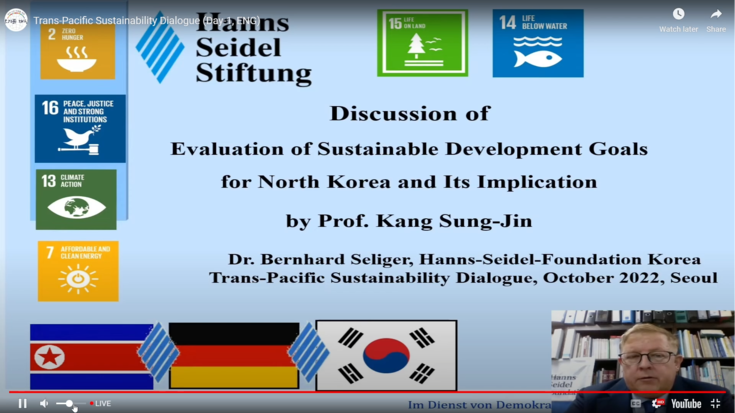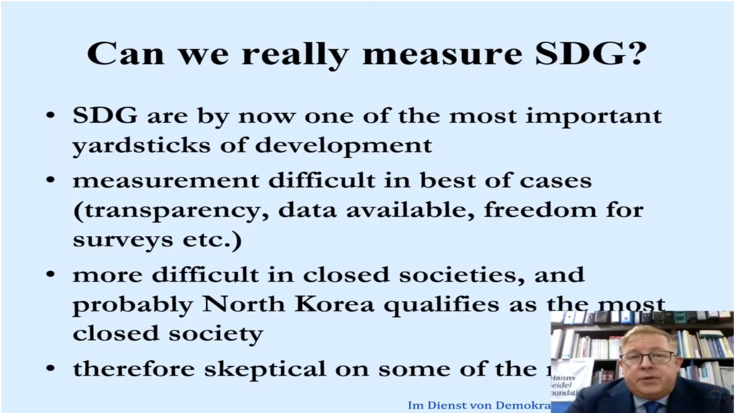Dialogue
Trans-Pacific Sustainability Dialogue 2022

The conference aimed to generate new research and policy partnerships to expedite the implementation of the Agenda's underlying framework of 17 Sustainable Development Goals. The Dialogue's main hosts and organizers were Stanford's Walter H. Shorenstein Asia-Pacific Research Center (APARC) and the Ban Ki-moon Foundation For a Better Future.
The first day took place at The Plaza Seoul and was co-hosted by the Korea Environment Institute. It included a series of public sessions and also Dr. Bernhard Seliger, representative of the Hanns Seidel Foundation Korea, took part as a panelists in the 4th plenary. Dr. Seliger gave an enlightening discussion of the “evaluation of sustainable development goals for North Korea and its implication by Prof. Kang Sung-Jin”. He raised the question if we can really measure SDGs and expressed skepsis saying getting exact results is difficult especially in closed societies like North Korea. Still, talking about SDGs in North Korea is necessary because SDGs are for example helpful to overcome departmental thinking in North Korea and make it easier to accept aid (as part of international cooperation e.g. zero hunger). Dr. Seliger went on and gave an overview of the new disaster risk reduction strategy of North Korea naming international cooperation as one of the factors.

On the second day, co-hosted by and held at Ewha Womans University, the panel discussions explored the making of livable, sustainable cities, such as Busan Metropolitan City, and the threats to them by climate change, disasters, and human security issues. To achieve systems transformation and sustainable development, discussions turned to the need to value and invest in nature. Highlighting the role of youth in achieving the SDGs, the Dialogue included student panels that featured young leaders from Stanford University, Ewha Womans University, Osaka University, and De La Salle University, among other Asian universities.
Link to Dr. Seliger’s presentation: https://youtu.be/rcv-u9GSJr8?t=22844
